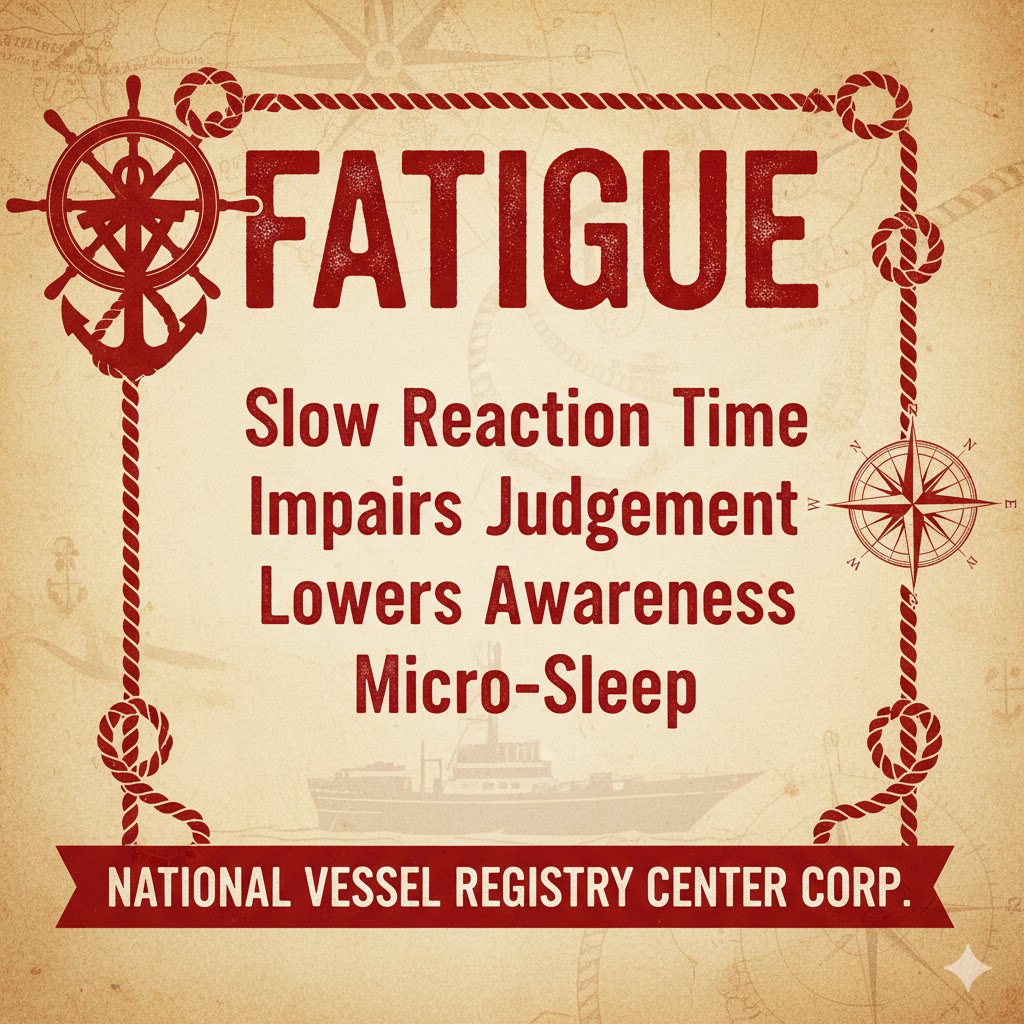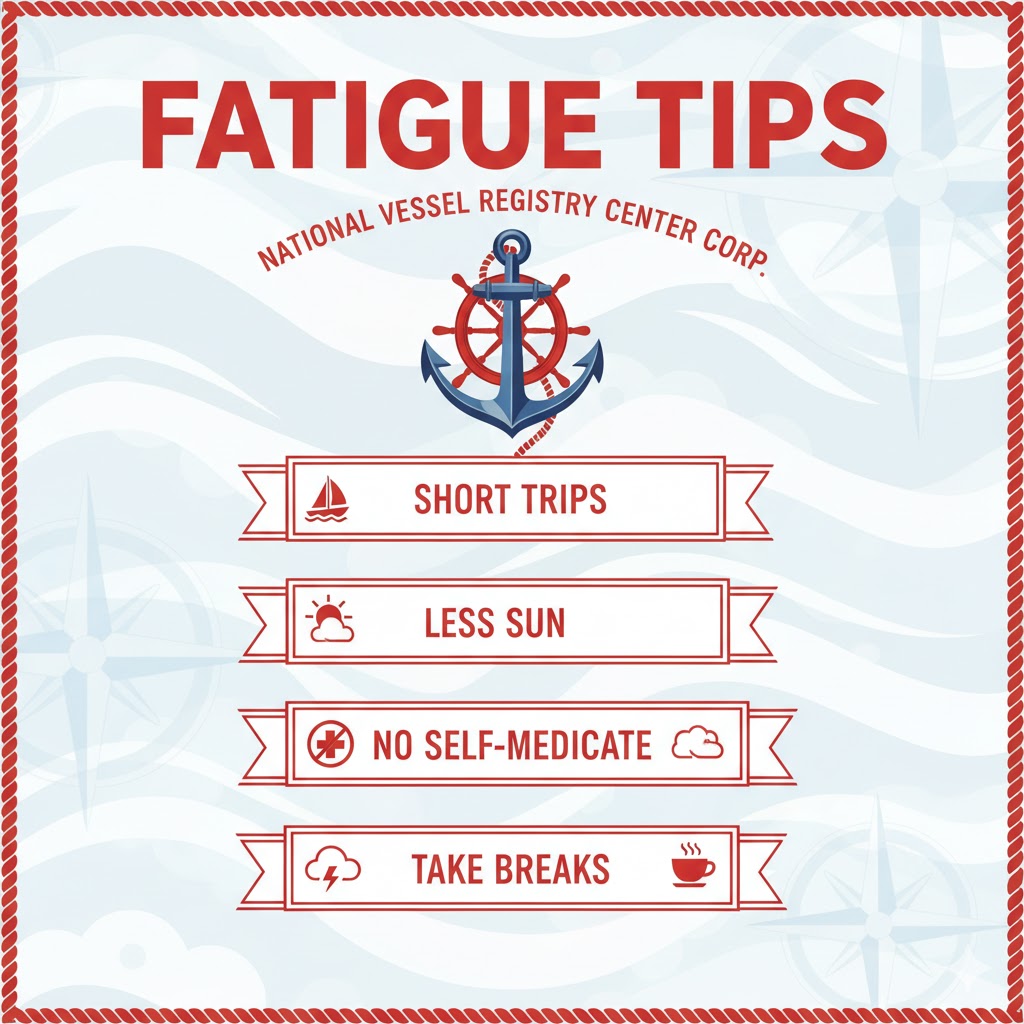In a move underscoring the government’s commitment to safety on the water, Transport Canada recently issued Ship Safety Bulletin (SSB) No. 15/2025 concerning mandatory fatigue management training.

This new requirement dictates that Canadian seafarers enrolling in certain Marine Emergency Duties (MED) courses must first complete an approved online course focused on managing fatigue at sea.
This training is not merely a formality; it is a direct response to the documented risks that fatigue poses across the entire marine sector.
We are dedicated to helping boaters and marine professionals understand and comply with these vital new standards, ensuring the safety of those operating under a Transport Canada regulatory framework.
Nature of Alertness on the Water
The reality of operating any boat, whether for commerce or for pleasure, involves an inherent level of risk. When fatigue enters the equation, that risk factor increases exponentially.
While the new bulletin specifically targets professional seafarers, the principles of avoiding exhaustion are paramount for everyone navigating Canadian waterways.
A fatigued operator—recreational or commercial—is an impaired operator. The complexity of the marine environment demands sharp reflexes, clear judgment, and constant situational awareness that only a rested mind can provide.
For example, in the study “Physical and Cognitive Consequences of Fatigue: A Review,” published in America’s National Institute of Health, a study found that:
“… muscle fatigue causes decrease in muscle activation pattern, which in turn affects the joint sense of position leading to disturbed balance and an increase in the risks of falls. Furthermore, fatigue appears to have an effect on cognitive functions… it can be safely said that a relation does exist between the intensity and duration of physical activity and the cognitive function.”

The Science Behind Crew Alertness
Operating a boat requires constant input and processing from the brain, including monitoring instruments, scanning the horizon, listening to radio traffic, and compensating for currents and weather changes. Fatigue degrades these cognitive functions rapidly.
- Slower Reaction Time: Exhaustion directly mirrors the effects of alcohol impairment, leading to delays in responding to sudden dangers, such as a navigational obstacle, a rapid weather change, or a man-overboard situation.
- Impaired Judgment: Decisions become risky or overly conservative. A fatigued person may miss a critical navigational mark or miscalculate the speed and distance of another boat, resulting in dangerous maneuvers.
- Micro-Sleeps: This is perhaps the most insidious danger. Micro-sleeps are brief, involuntary periods of sleep, often lasting only a few seconds. At 20 knots, a three-second micro-sleep means the boat has traveled a significant distance completely unpiloted, with potentially catastrophic results.
- Reduced Situational Awareness: The ability to multitask—a necessity for safe boating—diminishes severely. Critical details, like monitoring the bilge or noticing a small engine irregularity, are often overlooked until they escalate into an emergency.
Maintaining optimal crew alertness is, therefore, not just about personal comfort; it is a fundamental safety barrier protecting life, property, and the environment.
Transport Canada Preventative Actions for the Commercial Boat Crew
Maritime professionals need structured, systemic solutions to combat fatigue. Some strategies include:
- Implement Effective Rest Schedules: Adhering strictly to watchkeeping regulations is just the starting point. Schedules must consider the body’s natural circadian rhythm, ensuring critical duties do not consistently fall during times of maximum sleepiness (typically 2:00 a.m. to 6:00 a.m.).
- Create Optimal Sleep Environments: Crew quarters must be dark, quiet, and kept at a comfortable temperature. Noise insulation and the removal of light sources are crucial for maximizing restorative sleep quality during rest periods.
- Prioritize Napping Strategies: For long voyages, strategic napping (often 20 to 45 minutes) can be highly effective in maintaining alertness for the following watch. These short recovery periods should be planned into the duty cycle.
- Ensure Proper Nutrition and Hydration: Diets high in refined sugars and heavy, fatty foods can induce lethargy. Meals should be balanced, and crews must stay properly hydrated, as dehydration is a known fatigue enhancer.
- Establish a Fatigue Reporting Culture: Commercial operators must foster an environment where crew members feel safe to report their own fatigue or that of a colleague without fear of retribution. This is the final and most important barrier against an incident caused by exhaustion.
When it comes to regulatory requirements like Canadian boat registration for commercial activities, being able to demonstrate a proactive safety culture is key to smooth operation.
Transport Canada Strategies for Recreational Boaters
While recreational boaters do not face the same strict compliance requirements as professionals, they often face fatigue issues amplified by leisure activities—sun exposure, alcohol consumption (even minimal), and the desire to “stretch” daylight hours. Fatigue poses just as much of a threat on a fishing trip or a summer cruise as it does on a major cargo haul.
- Plan Shorter Transit Legs: If your trip involves long distances, break it down into manageable segments. Stop often to anchor, rest, and stretch, allowing for a complete mental reset before the next leg.
- Limit Sun Exposure: The heat and glare of the sun are major contributors to fatigue, often called “solar fatigue.” Wear proper sunglasses, hats, and protective clothing, and seek shade inside the cabin or under a bimini top when possible.
- Delegate Tasks: Do not try to be the sole operator. Share the helm, navigation, and lookout duties with other competent adults on board. Even a 30-minute break from concentrating on the water can significantly improve alertness.
- Avoid Self-Medicating: Using caffeine and energy drinks to push through exhaustion can lead to a crash later and negatively affect sleep quality. Rely on true rest, not chemical stimulants, to manage your energy levels.
- Check Weather Forecasts: Fatigue worsens significantly when battling rough seas or high winds. If the forecast suggests challenging conditions, postpone the trip until conditions improve, or shorten the distance to avoid excessive physical and mental strain.
For those operating large recreational boats, proper documentation, such as maintaining a pleasure craft licence or a full Canadian boat registration (if required), ensures you are operating legally. Always remember: a well-rested captain is the most important piece of safety equipment on any recreational boat.
The High Price of Maritime Fatigue
The consequences of operating a boat while fatigued are severe and far-reaching, impacting safety, finances, and legal standing. It is a risk that operators, both commercial and recreational, simply cannot afford to take.
Damage to Your Boat and Beyond
A momentary lapse of judgment due to exhaustion can lead to a rapid and costly chain of events:
- Grounding and Collision: Miscalculating a turn, missing a channel marker, or nodding off can result in running aground or colliding with another boat, a fixed object, or dock infrastructure.
- Equipment Failure: A tired operator may fail to notice a change in engine temperature, a leak, or an unusual vibration, allowing a small maintenance issue to spiral into major mechanical failure, often far from port.
- Environmental Harm: Accidents resulting from fatigue frequently lead to fuel spills or the release of other pollutants, incurring massive fines and clean-up costs, in addition to significant environmental damage.
Legal and Administrative Ramifications
Beyond the physical damage, the legal consequences can destroy a career or lead to the loss of boating privileges.
- Regulatory Penalties: If an accident investigation determines fatigue was a contributing factor, the operator or company can face heavy penalties from regulatory bodies.
- Insurance Complications: Insurers may deny claims or substantially increase future premiums if negligence due to fatigue is proven to have caused an incident.
- Criminal Charges: In the case of severe accidents resulting in injury or death, the fatigued operator may face criminal charges.
The requirement for certain boaters to have mandatory fatigue training reinforces the need for all operators to adhere to the highest standard of safety. Whether you require a pleasure craft licence or a small boat register for your boat, ensuring compliance with all operational safety standards, including training, is an ongoing responsibility that protects everyone.
Experience Enhanced Safety and Efficiency
Operating a boat when fully rested transforms the experience entirely. For the commercial operator, it means efficiency, professionalism, and a profitable voyage. For the recreational boater, it means genuine relaxation and enjoyment.
Commercial Benefits
- Increased Efficiency: Alert crews are more productive, complete tasks faster, and reduce time lost due to errors or minor incidents.
- Better Safety Record: A well-rested crew makes fewer mistakes, drastically lowering the risk of incidents that can lead to vessel downtime, costly repairs, and lost revenue.
- Improved Morale: When crews are given adequate, protected rest time, morale is higher, leading to better teamwork and a more positive working environment on board.
Recreational Enjoyment
- Pure Relaxation: The entire point of recreational boating is to escape stress. If you are exhausted, the escape turns into a chore. Being rested allows you to fully enjoy the natural beauty and the company on board.
- Confident Handling: A rested mind is a confident mind. You can navigate challenging docking maneuvers or crowded waterways with ease, avoiding anxiety and frustration.
- Better Learning: If you are learning new skills—like docking in high winds or using complex navigation software—being alert is essential for retaining new information and building competence.
This enhanced safety and efficiency go hand-in-hand with ensuring all required paperwork is in order.
The Message From Transport Canada: Stay Rested, Stay Safe
Our primary goal is to provide a seamless, secure, and straightforward online portal for boat owners to navigate their Transport Canada requirements. We focus on making the administrative burden as light as possible so you can concentrate on operational safety and enjoying your time on the water.
The more well rested you and your crew are, the better and safer your maritime journey.

